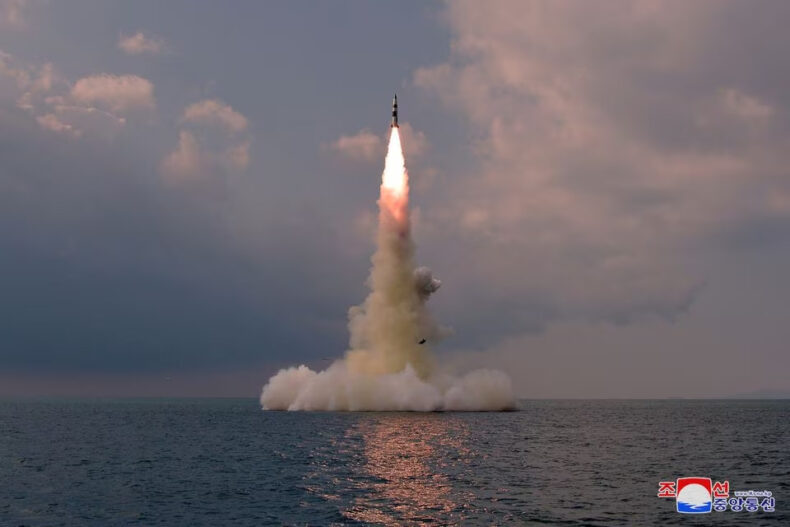US, South Korea to Coordinate Research, Chinese Warships Found Lurking Around
The Joint Chiefs of Staff of South Korea announced on Friday that South Korea has recovered from the sea a piece of a rocket used in North Korea’s unsuccessful attempt to launch its debut military satellite towards the end of May 2024.
About two weeks prior to the declaration, North Korea attempted failed to launch its first spy satellite, with the launcher and payload crashing into the ocean.
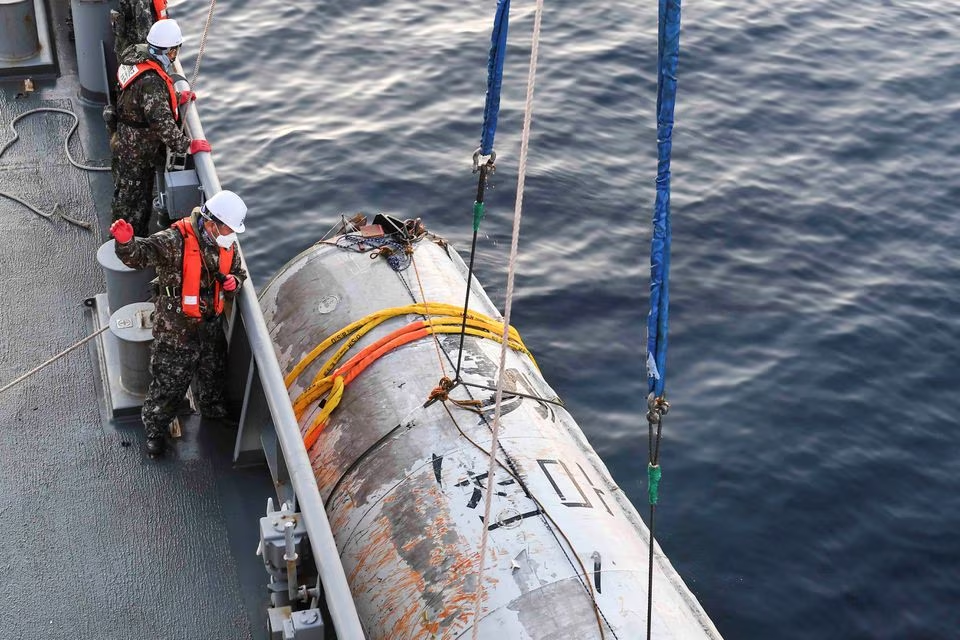
Table of Contents
Debris Recovered
The military reported that the debris was recovered on Thursday night from the seabed off the west coast at a depth of roughly 75 metres (246 feet). It also stated that the hunt for more debris from what the North claimed to be a space launch vehicle was ongoing.
Soon after the launch, South Korea started collecting debris and had already retrieved minor pieces. However, a strong tide and poor visibility contributed to the operation’s challenges, requiring the military to send ten warships and teams of deep-sea divers.
Photos from the Joint Chiefs of Staff showed a sizable cylindrical object with the marking “Chonma,” which is Korean for “a winged horse.” The rocket’s name, according to North Korea, was “Chollima-1.”
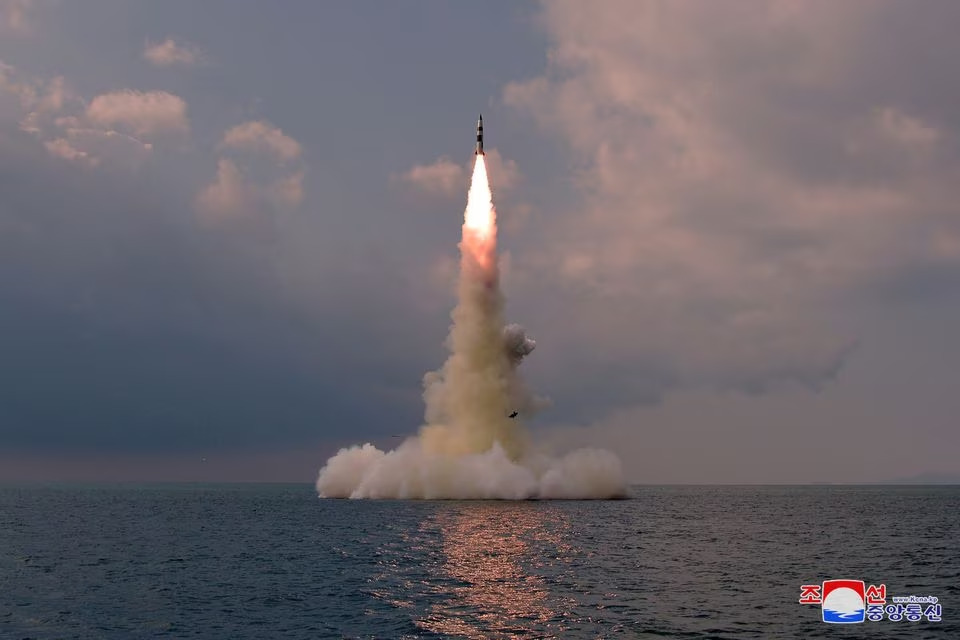
In a statement, it stated that “the salvaged object will be thoroughly analysed in cooperation with the United States.”
According to South Korea’s Defence Minister Lee Jong-sup, the debris seemed to be the rocket’s second stage, and the military would continue searching for the payload and third stage.
According to an expert, the recently recovered item in question seems to be a fuel tank.
He added that if the military discovers an engine linked to the tank, it could be able to learn more about the new rocket engine that North Korea is developing, which is intended to produce more thrust at higher altitudes.
China Also In Search
According to Chang Young-Keun, a professor at Korea Aerospace University, the debris will also provide clues as to North Korea’s technical advancements regarding its intercontinental ballistic missile (ICBM) capacity and whether it has purchased any parts from outside in possible violation of sanctions.
Chang emphasized the importance of studying the remains of the rocket.
However, it was not immediately obvious if the Chinese navy was continuing its search. South Korea has claimed that Chinese vessels have also carried out recovery operations in the waters where the North Korean rocket crashed.
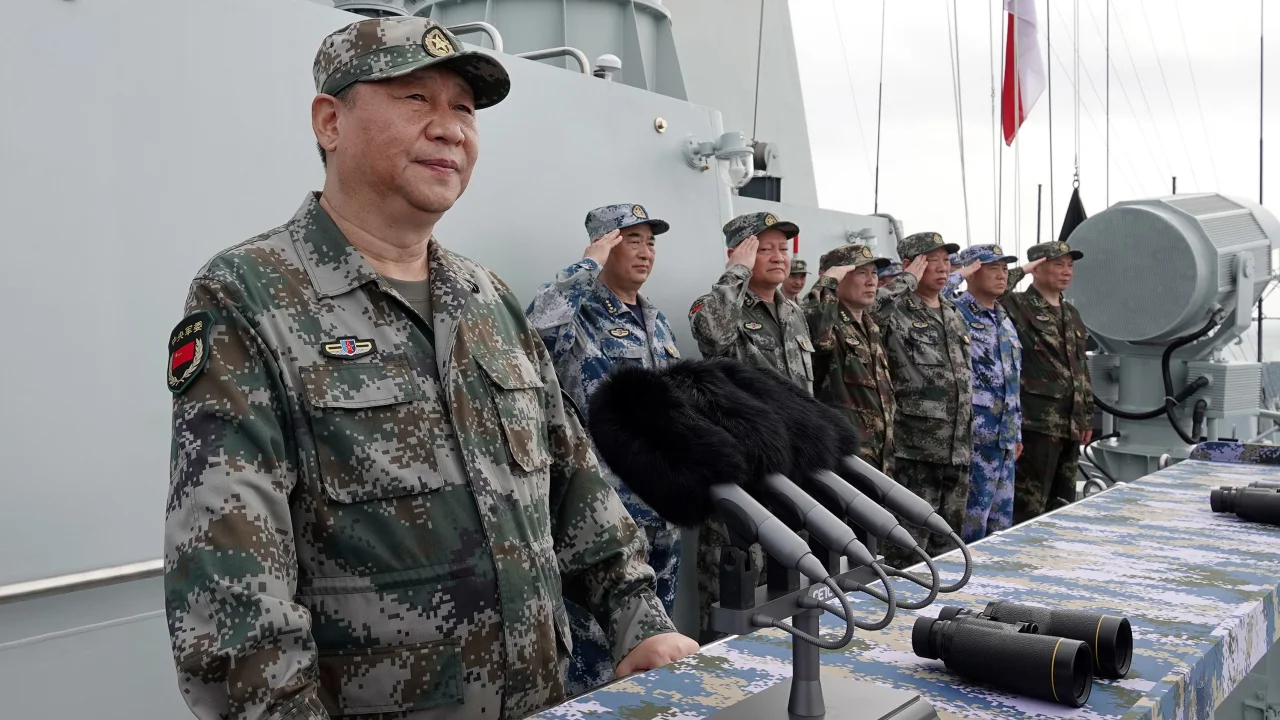
The launch has been denounced by Seoul and Washington as a provocative act and a breach of U.N. Security Council resolutions that forbid the North from using ballistic missile technology.
Pyongyang declared that it was utilising its right to space development to fend off American “aggression” and promised to conduct another launch shortly.
In order to improve reactions to North Korean threats, the U.S. guided-missile submarine USS Michigan made its first trip to South Korea since 2017 on Friday, according to the South Korean Navy.
The submarine’s deployment was viewed as a show of force against North Korea, which on Thursday fired two short-range missiles off its east coast and threatened an “inevitable” reaction to military exercises between Seoul and Washington
The Korean War
The Korean War is a protracted problem that has had a significant influence on both the Korean Peninsula and global society. The battle began in the middle of the 20th century when Korea was split into two independent countries: South Korea, which was ruled by a democratic government, and North Korea, which was ruled by a communist regime. Cold War tensions between the United States and the Soviet Union and the aftermath of World War II led to this separation.
1950 saw the start of the Korean War as North Korea invaded the South with the intention of uniting the peninsula under communist control. While China and the Soviet Union supported North Korea, the United Nations, under the direction of the United States, intervened to support South Korea. Three years of fighting culminated in an armistice deal in 1953 that created a demilitarized zone (DMZ) separating the two countries.
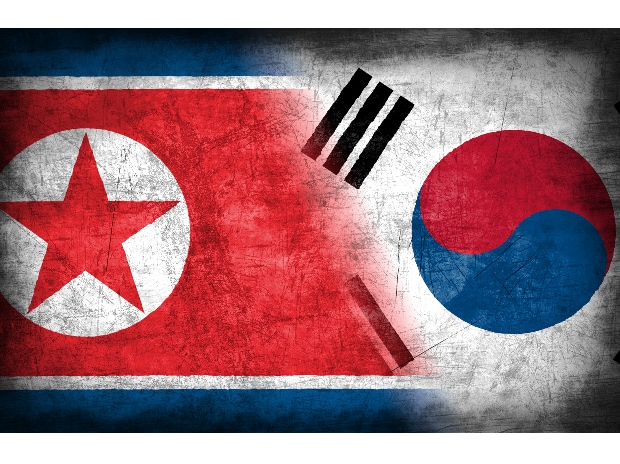
The Korean War has not formally ended since the armistice, and the two Koreas are still technically at war. Over the years, tensions have remained, even escalating into military clashes near the DMZ. Concerns in the international community have increased due to North Korea’s development of nuclear weapons and ballistic missile programmes, which has prompted sanctions and diplomatic measures to address the problem.
The Korean conflict has been the subject of ongoing efforts to find a peaceful solution. To denuclearize North Korea and advance regional stability, numerous nations, including the United States, China, South Korea, and Japan, have participated in diplomatic efforts. The historic summits between North Korean leader Kim Jong-un and South Korean President Moon Jae-in and the summits between Kim Jong-un and former US President Donald Trump are just a few examples of significant achievements.
The Korean conflict is still a major problem with wide-ranging effects. Finding a peaceful solution is crucial for the Korean people, the stability of the region, and global security. To overcome the obstacles and make progress in finding a long-term solution, continued diplomatic efforts, international cooperation, and a dedication to discourse are needed.







